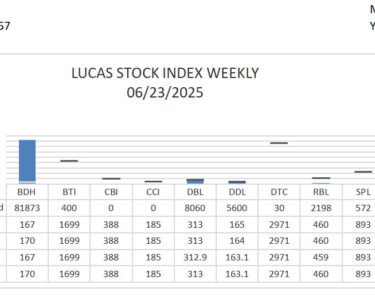Following the recent conclusion of a consultation period, it’s expected that secondary legislation covering the London Stock Exchange’s Private Intermittent Securities and Capital Exchange System (Pisces) will be put before Parliament this month. It will outline amendments to the Companies Act, while granting the Financial Conduct Authority (FCA) the power to implement and oversee the “sandbox” (testing) process. This will be run over a five-year period, during which time any organisations seeking to run a Pisces platform will need to seek approval from the regulator.
In a nutshell, Pisces is being designed to enable private companies to trade their securities using public market infrastructure. It will enable participating companies to reap the traditional benefits of public markets in terms of liquidity and price discovery, although the latter facet might be brought into question given that there will be no transaction reporting requirements. And it will only act as a secondary market; companies will have to look elsewhere if they’re planning to raise capital through the issuance of new shares.
Read more from Investors’ Chronicle
It’s going to be a case of trial and error from both regulatory and operational perspectives, but by the end of the sandbox period it’s envisaged that the regulator will have a clearer idea of what a permanent framework will look like. Government ministers will consult with the FCA to monitor outcomes on an ongoing basis, and implement permanent change to the framework at an earlier stage, if warranted, and subject to Parliamentary approval.
The introduction of legislation forms part of a wider push by the Treasury to reinvigorate capital markets, although the possibility exists that it could eventually achieve the exact opposite with regard to both Aim and the Aquis Exchange, depending on whether private share trading in the UK either becomes a precursor or an alternative to an initial public offering.
Trades on Pisces will be conducted on an intermittent basis, but within a light-touch, tailored regulatory regime which should offer greater protection than those trades conducted off-market, at least in theory. The exchange will initially be open to the wholesale market (ie, institutional investors), along with employees of participating companies (the consultation process raised concerns that the employees of a given company could potentially have access to information that is unavailable to other market participants). Importantly, the Treasury has also proposed the inclusion of certain categories of retail investors, namely “sophisticated investors” and “high-net-worth individuals”, but that could eventually be extended to include the entire retail sphere.
Companies that apply to run a Pisces platform will be able to determine the limited timeframe in which their shares will be traded, but also corporate governance and admission requirements (brokers will ensure that would-be buyers meet the eligibility criteria). Conditions on trading will also be permitted where a company’s legitimate commercial interests are concerned, such as restricting purchases by competitors.
It could be that the absence of statutory disclosure and compliance processes could act as a disincentive where some investors are concerned. It’s thought that private equity companies, for example, are unlikely to widely adopt the platform to achieve exits, as their ability to negotiate suitable terms is probably best suited to bilateral arrangements. Evidence suggests that larger stakes will continue to be sold in this manner or through bookbuilding processes.
A bespoke regulatory regime mightn’t be for everybody, but a sizeable proportion of trades are already conducted ‘off-exchange’ and/or through dealer networks, so pricing isn’t always as transparent as we might care to imagine. Add in the fact that private tech start-ups routinely issue scrip to raise capital and incentivise employees, and it’s certainly not difficult to appreciate why high-growth companies might want to get onboard.
Although it’s not a like-for-like comparison, Pisces has been loosely based on the Nasdaq Private Market (NPM), which itself is actively considering a launch in Europe. One suspects that the government’s determination to make private secondary markets more efficient and accessible may have been guided by the UK’s status as the largest destination for fintech funding in Europe. And it may also be hoping that the introduction of Pisces will prefigure a raft of IPOs in London, although there is no direct evidence to suggest that the undoubted success of NPM across the pond has acted as a stimulus where admissions are concerned.
The market is expected to launch at the tail-end of this year, following publication of the final rules by the FCA in June. If you think you fall within the retail categories given above, and are interested in finding out about the criteria, you can refer to sections 48 and 50A of the Financial Services and Markets Act 2000 (Financial Promotion) Order 2005.




